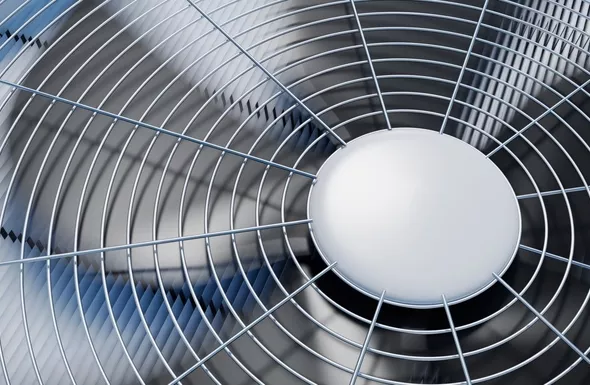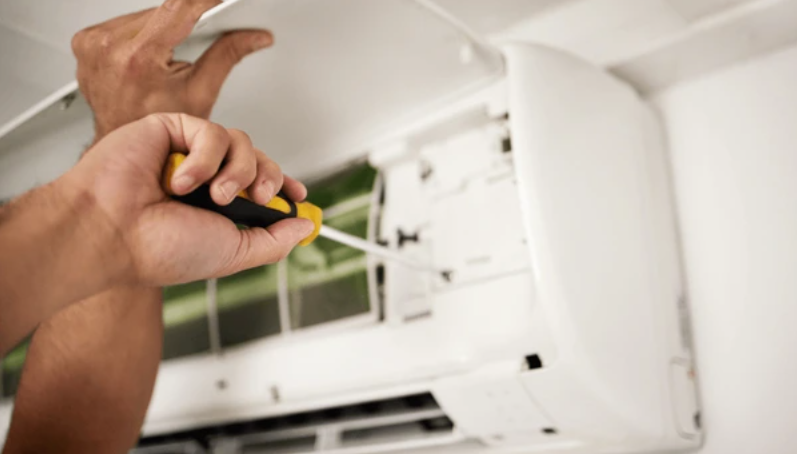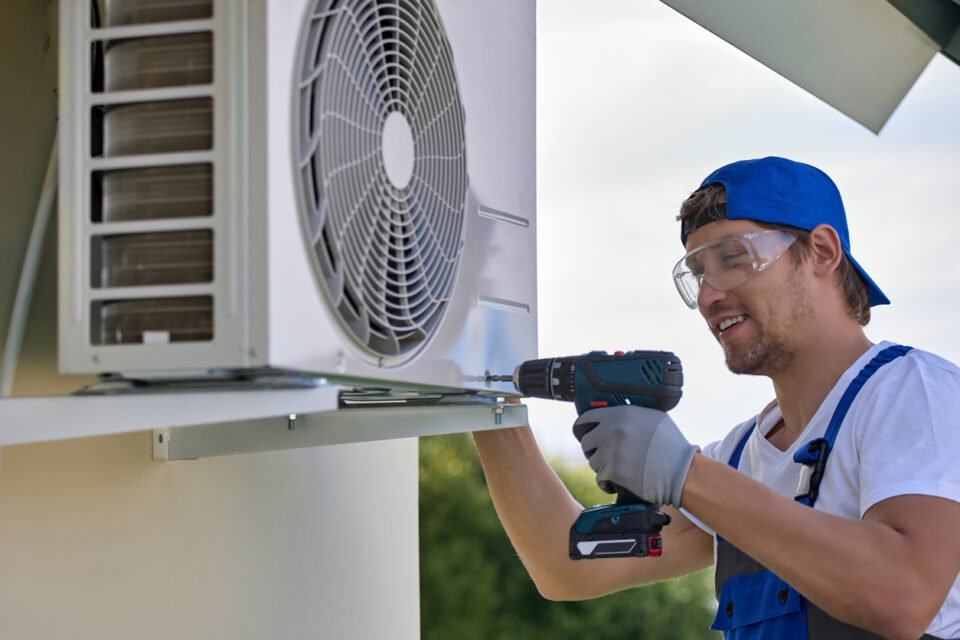Are you tired of expecting a cool blast of air from your home’s AC during a scorching South Carolina summer, only to be greeted with stuffy, hot air instead? In this blog, we will explore various reasons why your AC might be blowing hot air, such as an incorrectly set thermostat, a dirty or clogged air filter, issues with the outdoor unit, a refrigerant leak, or damaged ductwork. Now, let’s dive into the answer to the question: Why is my AC blowing hot air?
Get Your AC Up and Running with Elite Air
When you notice decreased efficiency in your AC system, call Elite Air & Heat. Our locally owned and family-operated business understands the needs of the area for quick, simple troubleshooting and easy finance options when you need your old unit replaced.
Call us at (803) 570-8835 or book an appointment below for 5-star service!
The Thermostat is Set to the Wrong Mode
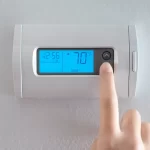
An incorrect thermostat setting is one of the simplest and most easily fixable reasons for an AC not blowing cold air. For example, the solution is straightforward if you want your bedroom to be a comfortable 69 degrees in the summer, but the thermostat is mistakenly set at 75 degrees. Adjusting the thermostat to the desired temperature of 69 degrees will result in immediate cooler air.
However, there are cases where simply resetting the thermostat on newer ACs does not resolve the issue. In such situations, the problem is typically related to faulty wiring within the thermostat. In these instances, we recommend replacing the malfunctioning thermostat with a new one for a permanent solution.
Dirty/Clogged Air Filter
When your air filter is dirty, it blocks the airflow in your HVAC system. Think of it like breathing through a straw with a bunch of stuff stuck in it. It becomes harder for your AC to pull in enough air to cool down, and things start to heat up.
With restricted airflow, your AC can’t extract as much heat from the air as it should. As a result, you end up with warmer air blowing out of your vents instead of nice, cool air. Not exactly what you were hoping for on a hot summer day, right?
But that’s not all. A dirty air filter can also cause another problem: frozen evaporator coils. When the filter is clogged, the airflow passing over the evaporator coils is limited. This can make the coils get too cold and gather moisture from the air. Eventually, that moisture freezes on the coils, creating a layer of ice. And you know what happens when there’s ice? It blocks the heat exchange process and prevents your AC from cooling the air properly. So, you’re left with even hotter air coming out of your vents.
To avoid this unpleasant situation, it’s important to regularly clean or replace your air filter as recommended by the manufacturer. Doing so ensures that your AC has proper airflow, maximizes its cooling efficiency, and avoids blowing hot air. It’s a simple but essential maintenance task to keep your AC running smoothly and your home comfortably cool.
Problem with Outdoor Unit
The outdoor unit contains a crucial component called the compressor, which plays a vital role in the cooling process. Its job is to compress the refrigerant, causing it to chemically expand and cool down the compressor coils. When the compressor fails to adequately expand the refrigerant, it results in insufficiently cooled coils. And guess what? Hot cooling coils won’t give you the cool air you expect from your outdoor AC unit.
Now, when it comes to dealing with a problem in the compressor, the solution can vary depending on the cause and extent of the issue. Sometimes, it might be more cost-effective to replace the broken compressor with a new one rather than attempting repairs. When you schedule an appointment with Elite Air & Heat, our skilled technicians will arrive promptly and be ready to tackle the problem. They will carefully evaluate the condition of your compressor and provide a clear explanation of the issue. Additionally, they will estimate the repair cost and recommend whether it’s best to repair or replace the unit.
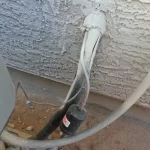
Refrigerant Leak
Unless refrigerant levels are maintained according to the manufacturer’s guidelines, the expansion of refrigerant necessary for transforming liquid to gas won’t occur. Consequently, cooling coils stay warm and get warmer the longer an AC runs without enough refrigerant.
The most common place for a refrigerant leak to emerge is in the refrigerant lines. Factory defects, corrosion, improper installation of the AC, and/or unusual vibrations can lead to refrigerant leaks.
Adding more refrigerant is only a temporary solution to leaking refrigerant. Whatever is causing the leak—and your AC blowing hot air—will inevitably worsen and create the need for more extensive repairs in the future. Moreover, refrigerant is a highly toxic substance that could cause nausea, dizziness, and difficulty breathing if improperly handled. Play it safe and get cooled off faster by calling Elite Air & Heating for immediate service.
An expert technician will always be happy to help in an emergency but don’t wait until your AC unit makes loud noises. Save time and money when you schedule a regular check-up for your air conditioning system. Elite’s HomeTeam Service Plan provides an annual 53-point checkup at an affordable price to catch issues before they develop into serious problems.
Leaky or Disconnected Ductwork
Even tiny leaks in the ductwork will interfere with air circulation throughout the whole system. Higher energy costs, stress on your HVAC system, increased wear and tear on the compressor unit, and no cool air are just a few repercussions you might have to deal with if your ductwork needs to be serviced.
A duct leak due to equipment failure involves coil cabinets with improperly sealed seams. Supply leaks in the ductwork will decrease the cool air flowing throughout your home. Sometimes, ductwork becomes disconnected for unknown reasons and needs to be professionally reattached by our experienced technicians.
Don’t Sweat the Summer! Call Elite Air & Heat for Prompt AC Repair
For 24/7 emergency service, advice you can trust, and easy financing options, call Elite Air & Heat today to schedule an AC inspection, repair, or installation appointment. Our hard-working technicians complete most jobs in just one visit.
